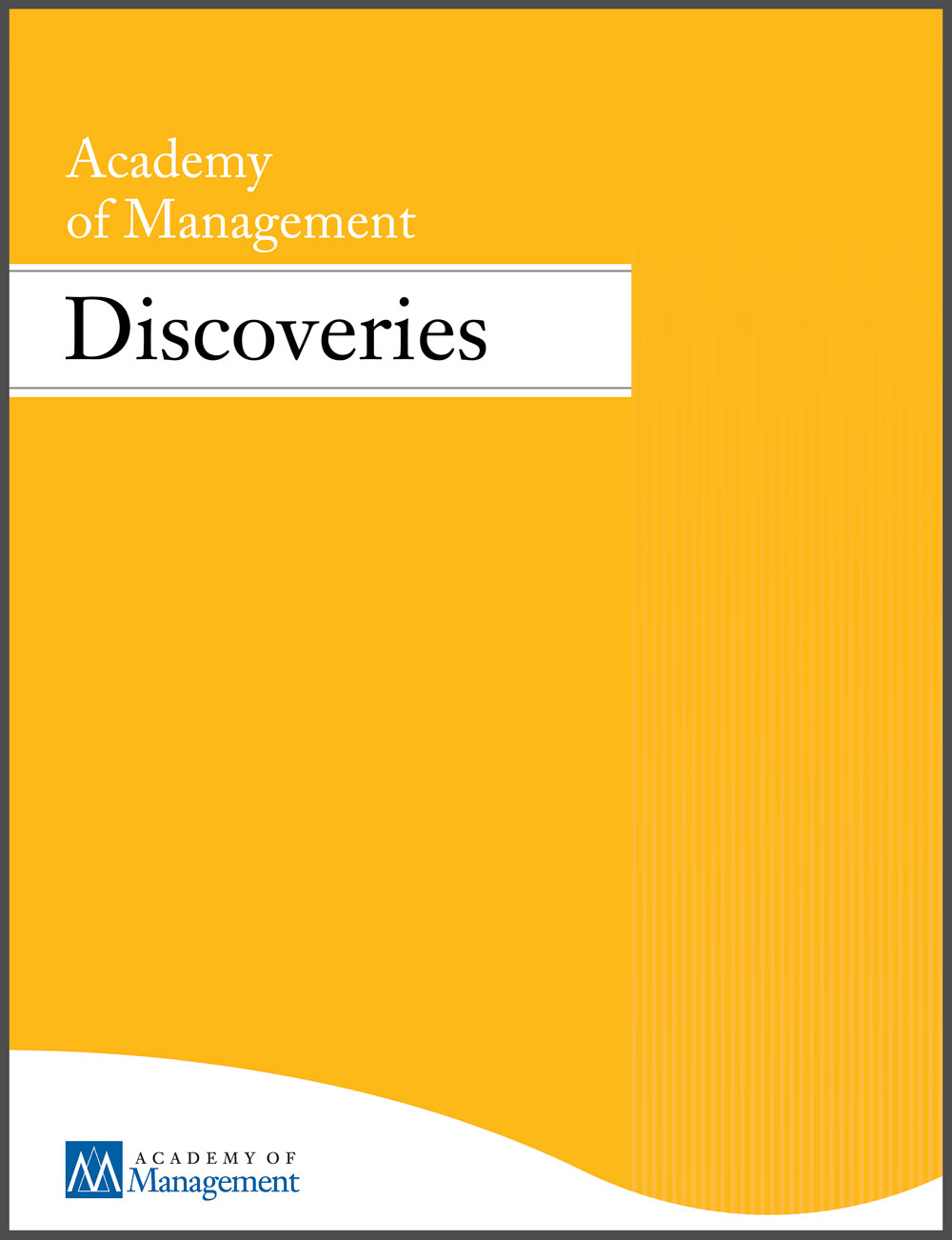Discoveries-through-Prose: Venturing through the Doors of Perception
IF 4.8
2区 管理学
Q2 MANAGEMENT
引用次数: 0
Abstract
As anyone who has funded a startup knows from experience, a strong founding team is a prerequisite for new venture success. But are skilled founders essential because they make the business run well? Or are they needed because they impress potential investors, thus attracting more funding? To find an answer, one must distinguish the genuine skills and experience of the founding team—that is, actual expertise—from how the founding team presents itself, which we label expertise signaling. We analyze data on 4,190 new ventures drawn from CrunchBase and self-styled profiles that the founders of these companies posted on LinkedIn. Both in terms of liquidity events and amount of capital raised, we found, expertise signaling by startup founders played a significant role in company success. To be sure, when predicting a liquidity event, actual expertise was still the strongest predictor. But when it came to raising funds, we were surprised to discover that founders’ expertise signaling was actually a more powerful predictor than their actual background and experience. Our findings have important practical implications and highlight the need for better theories of the role of the founding team in entrepreneurship and venture financing.散文发现:透过感知之门冒险
任何资助过初创企业的人都从经验中知道,一个强大的创始团队是新企业成功的先决条件。但是,技术娴熟的创始人之所以重要,是因为他们能让企业运转良好吗?还是因为它们给潜在投资者留下了深刻印象,从而吸引了更多资金而需要它们?要找到答案,必须将创始团队的真正技能和经验——也就是实际的专业知识——与创始团队的表现方式区分开来,我们将其称为专业知识信号。我们分析了来自CrunchBase的4190家新企业的数据,以及这些公司创始人在LinkedIn上发布的自封个人资料。我们发现,无论是从流动性事件还是融资额来看,初创公司创始人的专业知识信号都对公司的成功起到了重要作用。可以肯定的是,在预测流动性事件时,实际专业知识仍然是最有力的预测因素。但当谈到筹集资金时,我们惊讶地发现,创始人的专业知识信号实际上比他们的实际背景和经验更能预测他们。我们的研究结果具有重要的现实意义,并强调需要更好的理论来解释创始团队在创业和风险融资中的作用。
本文章由计算机程序翻译,如有差异,请以英文原文为准。
求助全文
约1分钟内获得全文
求助全文
来源期刊

Academy of Management Discoveries
MANAGEMENT-
CiteScore
10.00
自引率
3.20%
发文量
40
期刊介绍:
The mission of AMD is to publish phenomenon-driven empirical research that theories of management and organizations neither adequately predict nor explain. Data on these poorly-understood phenomena can come from any source, including ethnographic observations, lab and field experiments, field surveys, meta-analyses, construct validation research, and replication studies. AMD welcomes exploratory research at the pre-theory stage of knowledge development, where it is premature to specify hypotheses, and which generates surprising findings likely to stimulate and guide further exploration and analysis. This research must be grounded in rigorous state-of-the-art methods, present strong and persuasive evidence, and offer interesting and important implications for management theory and practice. Read the Discoveries FAQs.
 求助内容:
求助内容: 应助结果提醒方式:
应助结果提醒方式:


